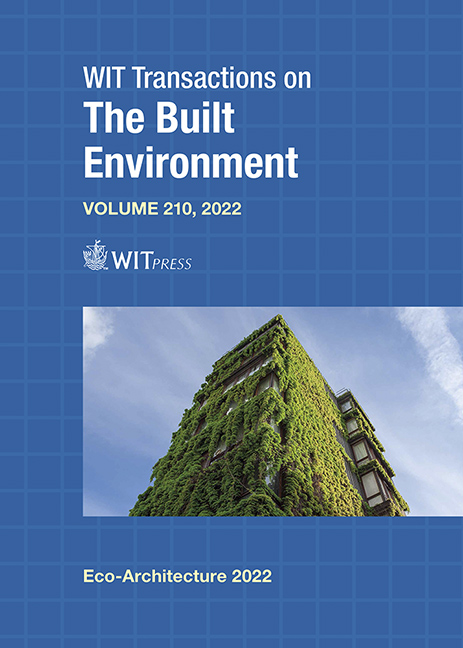DESIGNING AN URBAN FOOD SYSTEM FOR ACHIEVING CIRCULAR ECONOMY TARGETS: A CONCEPTUAL MODEL
Price
Free (open access)
Transaction
Volume
210
Pages
13
Page Range
15 - 27
Published
2022
Paper DOI
10.2495/ARC220021
Copyright
Author(s)
TONG ZOU, ALI CHESHMEHZANGI, AYOTUNDE DAWODU, EUGENIO MANGI
Abstract
In exploring the strategies for reaching sustainable development goals (SDGs), the importance of circular development has been greatly recognized in sustainable studies and practices. Regarding applying the circularity concept at city scales, the United Nations Economic Commission for Europe emphasizes that transitioning to a circular economy will help city leaders achieve SDGs and other global objectives of climate actions. The food sector is a significant contributor to climate change, biodiversity loss, and land degradation, which can all be resolved via circular economy solutions. There is an urgent need for our current dominant global food systems (FS) to change due to the multiple environmental influences across the whole food value chain (FVC). This calls for the implementation of circular economy principles in FS, especially for urban systems, which account for most of the world’s food consumption, loss, and waste; and for most of the world’s greenhouse gas emissions. Applying circular economy principles to each stage of FVC offers various opportunities to address FS issues as they enable each actor to identify the parts they can participate in FS transition. Secondly, circular economy strategies such as localizing food chains, food wastes reduction, and reusing raw materials offer solutions to FS sustainability, connecting FS sustainability transition with the transformation of industrial food metabolism from linear to circular. Since cities play a critical role in sustainable transitions from linear to circular, pursuing a circular urban food system (UFS) benefits circular urban metabolism too. To aid the implementation and promotion of circular economy in FS and cities, this study proposes a conceptual model of designing UFS for achieving circular economy targets.
Keywords
circular economy, food system, sustainability, conceptual model, food value chain





